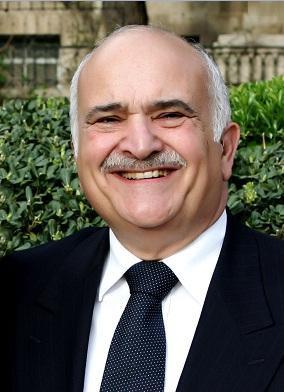- Local News
- Sun-2020-12-06 | 02:22 pm

HRH Prince Hassan, chairman of the Higher Council for Science and Technology, has stressed the need to recognise the interdisciplinarity of the natural sciences, the social sciences, and placed an emphasis on the good governance of "our thinking”.
Addressing the 22nd conference titled: "Landscape of Science, Technology and Innovation in the Islamic Countries”, organised by the Islamic World Academy of Sciences (IAS), Prince Hassan said: "Today, as we face a climate emergency, on the one hand, and a humanitarian emergency, on the other, the need for science as a ‘subjectively objective enterprise’ is urgent”.
Evidence-based solutions to problems and data-driven policies for normative goals can be sought within an area mapped out by the values, the prince added, according to a statement from his office on Saturday.
"When will we develop a cogito-sphere, a sphere of thinking and reflection, a sphere in which the intellect adopts a critical and holistic approach to knowledge beyond the narrow confines of this or that discipline?” he wondered.
Prince Hassan noted that partnerships for science, technology and innovation can generate opportunities for local, national, regional and global participation in the research process, in the form of knowledge open to pluralism in the widest sense of the word: Theoretical, methodological, epistemological pluralism.
Science based on firm human values to allow adaptation to the ever-changing and evolving demands of science, and to be in line with the reality of human development and the requirements of advancing development in a sustainable way, in economic, environmental and social terms, he said.
Science is a global public good with the ability to contribute to sustainable development and global well-being. "We call for the reassessment of science recognising the value of science as a tool to push the boundaries of human knowledge, to promote universal well-being, to monitor, analyse and respond to environmental, social and economic challenges,” the prince noted.
In a message delivered to the conference, Pakistani President Arif Alvi highlighted the importance of sustainable development of education and keeping pace with education updates to face the current global challenges, such as climate change, water shortages, natural disasters and food security, noting that the Islamic world has several scholars with distinguished achievements.
As an International organisation, IAS has been, since it was launched in 1986, establishing a footprint as an international academy of sciences that serves the 57 member countries of the Organisation of Islamic Cooperation as well as OIC communities and scientists and technologists worldwide, according to www.iasworld.org.









